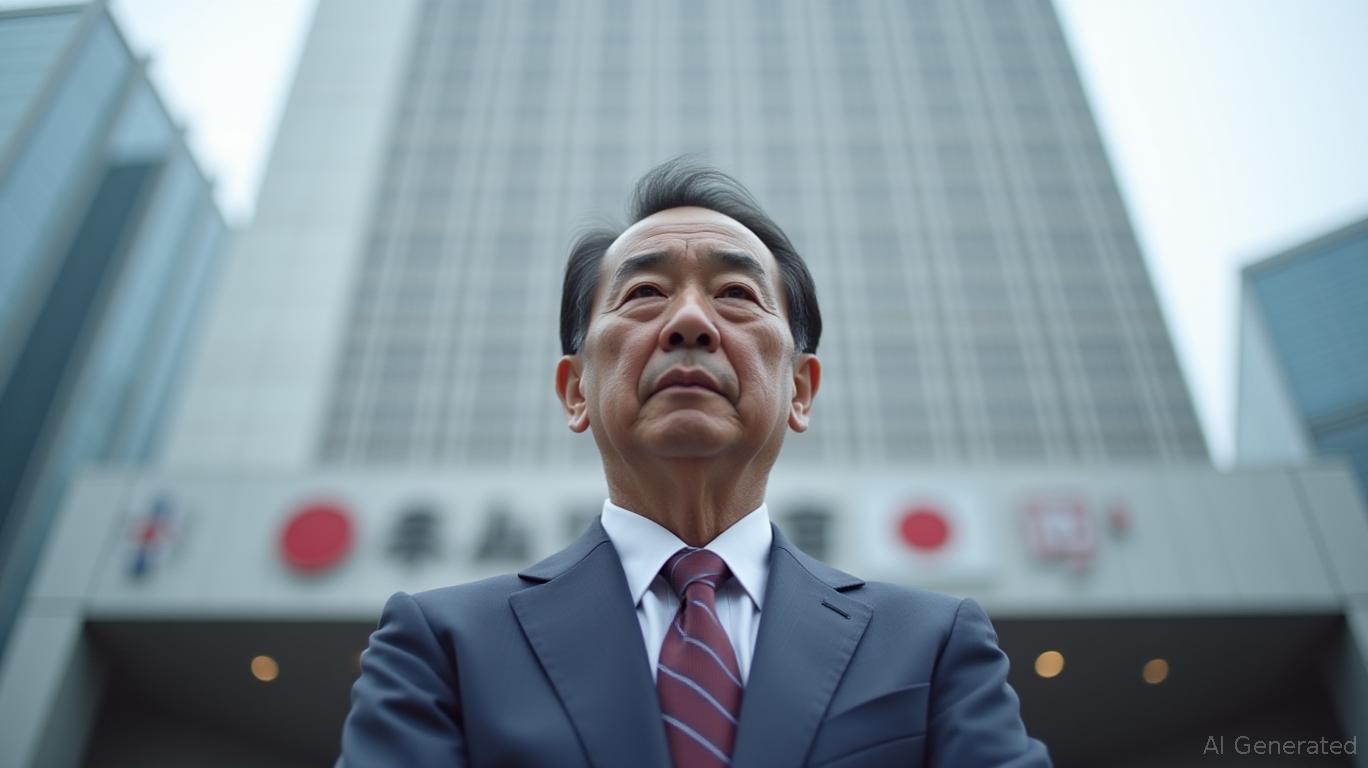Bessent's Advocacy for BoJ Independence Challenges Central Bank's Self-Governance
- U.S. Treasury Secretary Bessent urged Japan to grant BoJ more policy autonomy to tackle inflation and stabilize the yen, contrasting his domestic stance on the Fed. - His remarks fueled market speculation of a BoJ rate hike, briefly boosting the yen to 151.54 per dollar and raising traders' odds of a tightening to 20%. - Japan's 3-year inflation overshooting 2% targets and Prime Minister Takaichi's pro-low-rate stance highlight policy tensions amid global supply shocks and energy costs. - Analysts warn e
U.S. Treasury Secretary Scott Bessent has urged Japan’s newly formed administration to allow the Bank of Japan (BoJ) more leeway in setting policy, aiming to better address inflation and stabilize the currency—an approach that contrasts with his more accommodative attitude toward the Federal Reserve at home. In a social media update on October 29, Bessent stressed that government backing for the central bank’s independence is essential for “anchoring inflation expectations and preventing excessive exchange rate swings,”

Inflation in Japan has surpassed the BoJ’s 2% target for almost three years, fueled by disruptions in global supply chains, higher energy prices, and a weakening yen. Despite calls for tighter policy, the central bank has maintained its key interest rate at 0.50% since March 2024. Prime Minister Sanae Takaichi, who favors low rates, has not directly intervened in monetary policy but has voiced concerns about inflation’s effect on households, Bloomberg noted. Bessent’s call for central bank independence echoes his broader view that the BoJ has been slow to respond to inflation, a point he reiterated in talks with Japanese Finance Minister Satsuki Katayama,
Following Bessent’s statements, the yen briefly climbed to 151.54 per dollar, reversing earlier declines. Traders increased the odds of an immediate BoJ rate hike to 20%, up from 10% the day before, Bloomberg reported. While most analysts still predict the BoJ will keep rates unchanged at its October 31 meeting, expectations for a tightening cycle starting in early 2026 have grown. “Bessent’s comments may actually make the BoJ less likely to move tomorrow, as he would be seen as a major influence,” said Yoshimasa Maruyama, chief market economist at SMBC Nikko Securities, according to Bloomberg.
The yen’s value has been closely linked to the policy gap between the U.S. and Japan. The Federal Reserve is widely anticipated to lower rates by 25 basis points on Wednesday, with further cuts expected in 2026,
Bessent’s support for BoJ independence stands in contrast to his public criticism of Fed Chair Jerome Powell for not cutting rates sooner. He has argued that U.S. monetary policy should move faster to ease, countering inflationary effects from tariffs imposed during the Trump administration, Bloomberg said. This dual approach underscores the complex relationship between domestic and international monetary policies, especially as Japan manages a fragile recovery amid trade disputes and fiscal stimulus.
Experts warn that outside influences, such as Bessent’s remarks, could complicate the BoJ’s policy decisions. Shoki Omori of Mizuho pointed out that if investors view rate hikes as a reaction to U.S. pressure, it could erode confidence in the BoJ’s independence, Bloomberg reported. The central bank is also considering the economic effects of Takaichi’s fiscal stimulus, which prioritizes growth over immediate inflation control.
With the yen hovering near 152.00 per dollar, there is still uncertainty in the market about when the BoJ might raise rates. A move to tighten policy in December or January would mark a significant change in Japan’s monetary direction and could impact global currency markets. For now, the BoJ’s cautious approach reflects the challenge of balancing inflation concerns with the need to support an economy still recovering from years of deflation, Reuters reported.
Disclaimer: The content of this article solely reflects the author's opinion and does not represent the platform in any capacity. This article is not intended to serve as a reference for making investment decisions.
You may also like
Startale Group and SBI Holdings to Launch Fully Regulated Digital Ye
Nasdog Warning: BCA Research Sees AI Boom Ending and US Stocks Crashing by H2 2026
Everbloom built an AI to turn chicken feathers into cashmere
Neurolov Partners With CyberCharge to Power Decentralized AI Energy Networks